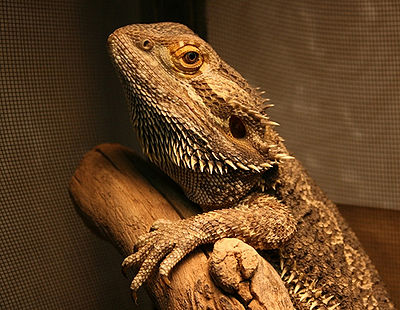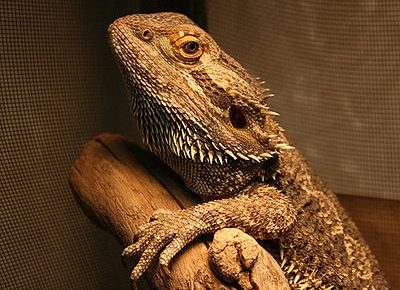
A pet reptile may vomit, appear listless, change skin color or lose its appetite. If your pet reptile shows signs of illness, visit your veterinarian immediately.
These are some of the common ailments which reptiles may suffer from:
- Egg Binding – Egg-binding occurs when a female cannot pass the mature eggs formed in her reproductive system. It is common in many reptile species, including iguanas, snakes, and turtles. In many cases it is preventable with good nutrition and husbandry.
- Gout – Joints may be enlarged, stiff, and painful. If there is renal failure or there are large deposits of uric acid in the kidneys, they may be enlarged. Gout is a common disease among reptiles, including snakes, iguanas, monitor lizards, and tortoises.
- Infectious Stomatitis (Mouth Rot) – An inflammation of the mouth common in all reptiles. It is caused by stress due to inappropriately temperature-regulated environment, overcrowding, internal or external parasites, trauma, or poor nutrition.
- Mites and Ticks – Lizards, snakes, turtles and tortoises can all be infected by ticks and mites. Ticks and mites both feed on the blood of reptiles, and if the infestation is severe, may cause anemia. Ticks are visible but mites are not.
- Pentastomes – Internal parasites, generally living in the lungs and respiratory tract of reptiles. Humans can become infected from reptiles.
- Salmonellosis – Turtles, lizards and snakes are likely to carry salmonella. The animals do not become sick as a result of the infection, but salmonella can be dangerous to humans.
Articles about reptile diseases:
- Atadenovirus in Lizards
- Ball Pythons and Anorexia
- Metabolic Bone Disease in Reptiles
- Reptile Pets and Salmonella
- Stargazing in Reptiles



